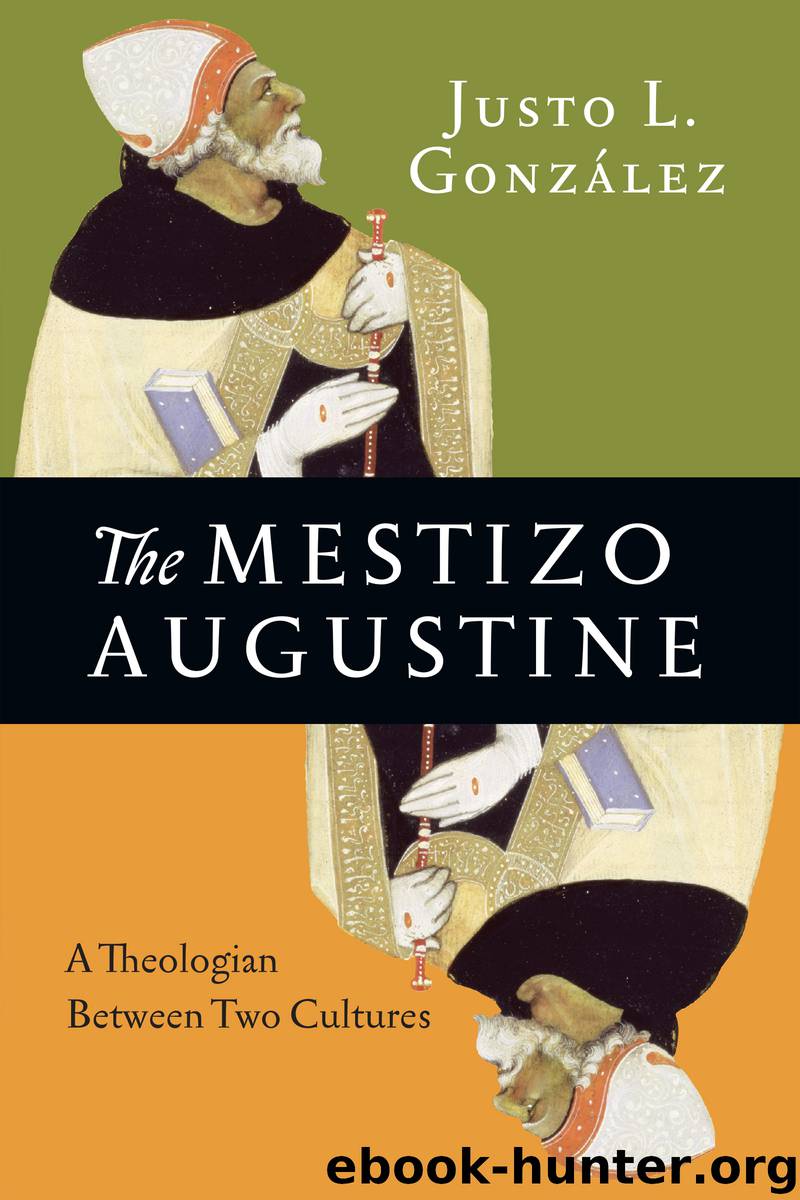The Mestizo Augustine by Justo L. González

Author:Justo L. González [González, Justo L.]
Language: eng
Format: epub
ISBN: 9780830873081
Publisher: InterVarsity Press
Published: 2016-10-03T16:00:00+00:00
5
The Shepherd and the Donatists
The Background
By the last decades of the third century, the northern shores of Africa were one of the regions in which Christianity grew most rapidly. In its early stages, that growth took place mostly in Carthage and in other centers of Roman culture and civilization. This should not surprise us, for the first Christian expansion took place among people who spoke Greek, and in Africa it was only the educated elite who knew this language. But soon believers among that educated elite began witnessing among their neighbors of Latin speech, and this is the reason why Christian theology in Latin had its origin—and almost all its main theologians until the fifth century—in North Africa.
From that Latin population, the gospel rapidly spread among the masses that still spoke the ancient African languages—some Punic, but the majority Berber or Libyan. It was among these masses that Christianity experienced an explosive growth, to the point that already at the beginning of the fourth century there were areas in which most of the population had become Christian. As is often the case in similar circumstances, this process of conversion was aided by the discontent of the masses with the exploitative Roman regime. The Roman system of collecting taxes, which simply made the authorities of each area responsible for meeting a certain quota, allowing them also to collect more than was required and keep the difference, led not only to corruption but also to onerous taxation of the lower classes, particularly of farmers with limited lands. The burden was such that many would simply abandon their lands, for they could not pay the taxes imposed on them.
A fairly common practice among those charged with collecting taxes was to offer loans to landholders so they could pay their taxes, and then take possession of the land when the farmer could not cover his debt. For these and similar reasons, throughout the area, but particularly among the poorer urban population and among the peasantry in the interior lands, Romans and their agents were profoundly disliked, and frequently had to be guarded by military escorts as they set out to collect taxes. Since these Romans who exploited and oppressed the people were also persecuting Christianity, soon many among the lower echelons of society began looking favorably on Christianity. Thus the rapid conversion of a good part of the area to Christianity also had undertones of protest, or at least of resistance against the existing order.
As already stated, the theological perspective that soon became dominant among Christians in Africa was moralistic in nature, seeing God above all as a legislator and judge who demanded obedience and holiness. From that perspective the main mark of the church is its holiness—not in the sense of having been chosen or established by God, but rather in the moral sense of being free of sin. Quite naturally, this perspective leads to repeated schisms, for there is always someone who is convinced that the church as it presently exists is
Download
This site does not store any files on its server. We only index and link to content provided by other sites. Please contact the content providers to delete copyright contents if any and email us, we'll remove relevant links or contents immediately.
The Hatha Yoga Pradipika (Translated) by Svatmarama(2477)
Real Sex by Lauren F. Winner(2467)
The Holy Spirit by Billy Graham(2409)
The Secret Power of Speaking God's Word by Joyce Meyer(2248)
The Gnostic Gospels by Pagels Elaine(2023)
Devil, The by Almond Philip C(1897)
23:27 by H. L. Roberts(1889)
Jesus by Paul Johnson(1882)
The Nativity by Geza Vermes(1846)
All Things New by John Eldredge(1779)
Chosen by God by R. C. Sproul(1755)
Angels of God: The Bible, the Church and the Heavenly Hosts by Mike Aquilina(1626)
The Return of the Gods by Erich von Daniken(1571)
Angels by Billy Graham(1548)
Evidence of the Afterlife by Jeffrey Long(1457)
Knowing God by J.I. Packer(1429)
The Gnostic Gospel of St. Thomas by Tau Malachi(1408)
Victorian Sensation by James A. Secord(1403)
How To Be Born Again by Billy Graham(1402)
